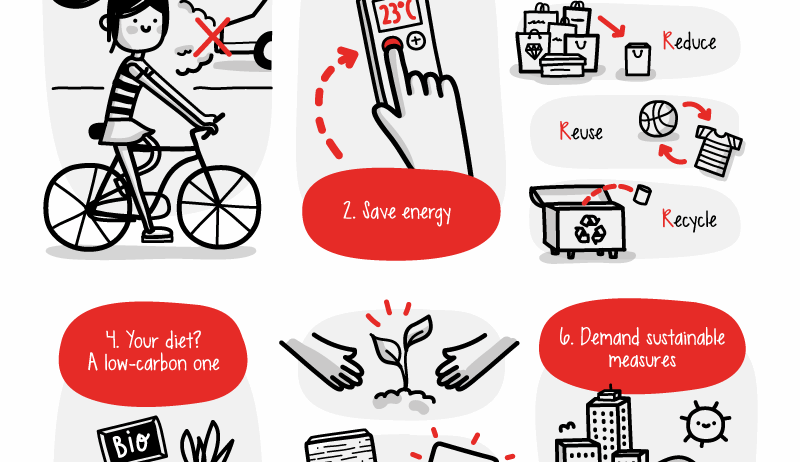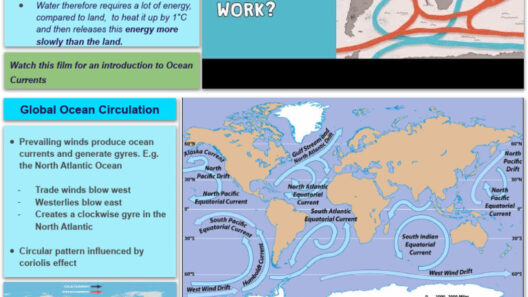Climate change is an existential crisis that looms large over our planet, demanding our immediate attention and collective action. While the challenge may seem daunting, there are simple, yet impactful actions we can take to mitigate its effects. This article explores various avenues that each individual can pursue, fostering a sense of agency and responsibility in combating climate change.
Not only do these actions empower us as stewards of the Earth, but they also invite curiosity about the intricate relationship between our daily choices and the environment.
Understanding our Carbon Footprint: The First Step Toward Change
To effectively combat climate change, we must begin by grasping the concept of a carbon footprint. This term encapsulates the total greenhouse gas emissions—particularly carbon dioxide—that result from our activities, whether it be driving a car, heating our homes, or consuming goods. A deeper understanding of this footprint can lead to conscious choices that can significantly reduce our impact.
Perform an Audit: Assessing Your Emissions
To embark on this journey, consider conducting a personal carbon audit. Analyze your daily activities and identify areas with the highest emissions. Are you reliant on fossil fuels for transportation? Do your dietary choices contribute to higher carbon outputs? Taking stock of your habits lays the groundwork for making informed adjustments that can yield substantial benefits.
The Journey Toward Sustainable Transportation
One of the quickest ways to curtail your carbon footprint is to rethink your mode of transportation. Commuting by car, especially fossil fuel-powered vehicles, is one of the largest contributors to carbon emissions.
Opt for Eco-friendly Alternatives
Consider walking, cycling, or using public transportation whenever possible. These alternatives not only reduce emissions but also enhance physical well-being and encourage social interactions. If you must drive, consider shifting to electric or hybrid vehicles, which offer a more sustainable choice. Another innovative solution is carpooling, which maximizes efficiency while minimizing carbon output.
Embracing Renewable Energy: Powering a Greener Future
Transitioning to renewable energy sources is integral to mitigating climate change. The current reliance on fossil fuels is unsustainable and detrimental to our planet.
Investing in Clean Energy Sources
Many individuals can switch to renewable energy by selecting solar or wind power providers. If feasible, installing solar panels at home can yield long-term savings and significantly lower carbon emissions. Engaging thoughtfully with energy providers by advocating for clean energy options can also prompt a shift in local policies, helping communities become less reliant on fossil fuels.
Conserving Energy: Everyday Practices for a Sustainable Future
Conserving energy in our homes is an often-overlooked opportunity to reduce emissions. Simple practices can lead to considerable reductions in energy consumption.
Small Adjustments with Big Impacts
Start by swapping incandescent bulbs for LED lighting, a small change that can lead to a dramatic decrease in electricity use. Unplug devices when not in use to eliminate phantom energy loss. Enclosing drafts with weather stripping and utilizing energy-efficient appliances further rounds out an energy-saving approach. The cumulative effect of these small actions can spark significant change.
The Power of Plant-based Diets: Nourishing Yourself and the Planet
Food production is responsible for approximately one-quarter of global greenhouse gas emissions. Our dietary choices wield substantial influence over environmental impacts and can steer our climate trajectory.
Adopting a Sustainable Diet
Consider incorporating more plant-based meals into your diet. Eating less meat and dairy not only positively influences personal health but also promotes lower carbon emissions associated with livestock production. Explore local produce markets, as choosing seasonal and local products can diminish the carbon footprint related to transportation and preservation. Transitioning to seasonal and local options not only fosters community but also ensures fresher, more nutritious food.
Reducing Waste: The Ripple Effect of Conscious Consumption
Waste generation is another component of our environmental impact that requires careful attention. A culture of disposability in consumer goods exacerbates climate issues, yet there are ways to mitigate this flood of waste.
Embracing the Principles of Reduce, Reuse, Recycle
Adopting a zero-waste lifestyle can significantly minimize your carbon footprint. Begin by reducing consumption — question the necessity of new purchases and prioritize quality over quantity. Reuse items creatively, repurposing them instead of relegating them to landfills. Finally, end the cycle with responsible recycling practices. Understanding local recycling rules will enhance your efforts, creating a culture of sustainability and resource conservation.
Advocacy and Education: Your Voice Matters
Individual actions are powerful, yet collective movements amplify our efforts. Advocacy is crucial in driving policy changes that support sustainable practices across communities and nations.
Becoming a Climate Advocate
Engage with local organizations dedicated to combating climate change. Volunteering for campaigns raises awareness and mobilizes action. Share knowledge within your community, sparking discussions around sustainability and climate action. The more we educate ourselves and those around us, the more equipped we become to demand changes from policymakers, fostering an environment where sustainability thrives.
Conclusion: A Collective Commitment to a Sustainable Future
The fight against climate change may seem insurmountable, but by embracing these simple actions, we open the door to a more sustainable future. The culmination of individual choices—transportation, energy, diet, waste reduction, and advocacy—creates an intricate tapestry of change. Through these actions, we foster a culture of environmental mindfulness while preserving the planet for future generations. Every small step counts, igniting a larger movement toward a healthier, more sustainable world.







